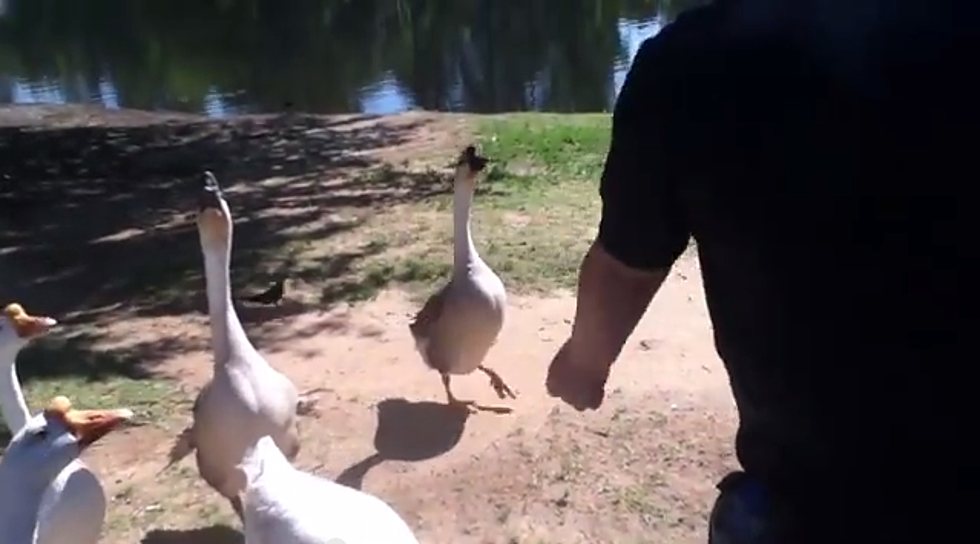
Don’t Feed Bread to the Ducks and Geese at the Park
Did you know that feeding bread to the ducks and geese at the park is bad for them? I didn't until I posted a video of my stepson and I doing just that. A friend of mine who is also a wildlife expert contacted me and told me that it was bad for the birds. So with the weather getting pretty, I know others might head to the park to do the same thing. Help spread the word and save the birds.
Warmer temps and sunshine send people to Spring Lake Park and Bobby Ferguson Park for fun, recreation and exercise. If you grab a loaf of bread and head to the park to feed the birds, save the bread for your sandwiches and please don't feed it to the birds. You could be harming them. You can still feed the birds but follow these guidelines to make sure the health of the birds are kept in check. This is from our local wildlife expert Lori Anderson. Here are Lori's tips on what to feed our local water fowl:
What Not to Feed:
These are the least nutritious and most unhealthy foods to feed: bread, chips, crackers, popcorn and similar bread-type products and scraps. Do not feed any products that are spoiled or moldy; different types of mold can be fatal to waterfowl.
Good Foods:
- Cracked corn
- Wheat, barley or similar grains
- Oats (uncooked; rolled or quick)
- Rice (cooked or uncooked)
- Milo
- Birdseed (any type or mix)
- Grapes (cut in half)
- Frozen peas or corn (defrosted, no need to cook)
- Earthworms
- Mealworms (fresh or dried)
- Chopped lettuce or other greens or salad mixes
- Vegetable trimmings or peels (chopped)
- Duck feed pellets or poultry starter pellets are another great option, and they can be purchased from farming or agricultural supply stores.
Tips for Feeding:
- Stop feeding if the birds appear uninterested or are leaving the food uneaten, and avoid feeding the birds if other visitors are already offering treats.
- Only offer foods in bite-sized pieces the birds can easily consume without choking or struggling.
- Be wary of birds that approach closely and remember that they can still be aggressive, particularly larger waterfowl such as swans and geese.
- Litter can hurt birds in many ways, so be sure to dispose of all trash properly, including bags, twist ties and unsuitable scraps.
- Do not allow pets or children to chase or disturb the birds, particularly young birds or families that could become stressed or injured more easily.
You can follow Lori Anderson's wildlife rescue on Facebook under Toby's Tales. Should you find any wildlife injured and in need of care, please take the animal to Rankin Veterinary Clinic in Texarkana, Texas. Lori will pick the animal up from the vet after it has been examined. If it can be saved, Lori will care for it until it is ready to be safely released back into the wild.
More From Power 95.9









